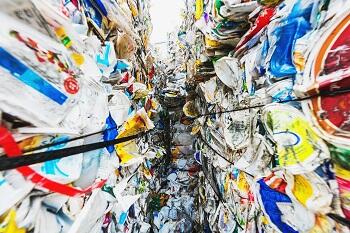Nextchem launches MyRechemical, its subsidiary for waste to chemical technologies

Within just weeks after the launch of MyReplast trademark for upcycling technology of recyclable plastics, Maire Tecnimont company for energy transition NextChem launches MyRechemical, a new subsidiary entirely dedicated to chemical valorization of non-recyclable plastics and “Waste to Chemical” processes. Thanks to this additional initiative, NextChem can offer a complete and integrated platform on industrial scale for the recovery of all types of plastic waste.
MyRechemical’s technological portfolio allows to produce different chemical products and circular fuels, low carbon and high value added. Circular products, obtained by the recovery through chemical conversion of waste, allow to reduce CO2 emissions when used in place of products derived from hydrocarbons and to avoid emissions generated by waste incineration, increasing the recycling rate.
NextChem’s initiative is a result of the positive feedback on proposals related to Waste to Chemical (on which the company is working for several projects with oil companies, including Eni). A dedicated formal entity was created to concentrate technical skills that are necessary to the development and commercialization of a technological solution, which is getting increasing interest from the market. The CEO is the engineer Giacomo Rispoli, already in charge of Waste to Chemical of NextChem, with decades of experience in Oil & Gas sector and in industrial technologies and energy transition.
The platform is the result of the integration between different proprietary and licensed technologies. The core of the process is the chemical conversion of carbon and hydrogen contained in waste (non-recyclable plastics, RDF and dry fraction) by partial oxidation and subsequent purification, from which a low carbon syngas is obtained, able to be converted with process extension into hydrogen, methanol, ethanol and derivatives, products with a lower carbon content than those from fossil sources, which can be included in the category of sustainable fuels.
This solution combines environmental benefits of circular economy and of decarbonization and fits with the world-wide need for refineries to be converted into green processes. This is necessary for the energy transition from fossil fuels to renewable energy, with the aim to contain the rise in temperature of the planet and climate changes.


















